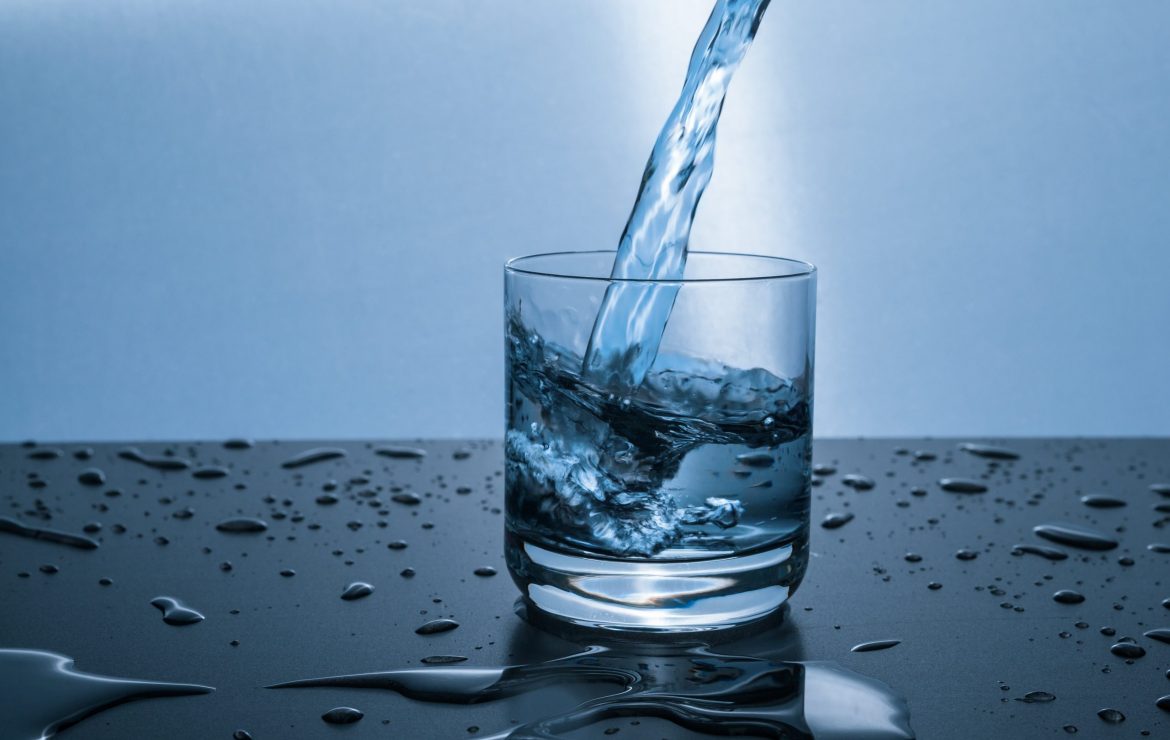Water is a key component of the human body, constituting 50 to 70% of the person’s mass – depending on the size of the body- thus, adequate and regular water consumption plays a vital role in maintaining health.
Benefits of drinking water
Water plays a key role in the formation of blood and lymphatic fluid, in addition to liquid secretions such as saliva, tears and gastric juices.
Drinking sufficient water helps regulate body temperature, regenerate and moisturize the skin and maintain health.
Water boosts the health of the digestive system by facilitating digestion and nutrient absorption, as well as treating constipation.
Drinking water before meals promotes a sense of fullness and reduces appetite, which helps you eat less and lose weight, in addition, it increases fat metabolism, which further helps in the weight loss process.
Drinking sufficient quantities of water helps detox the liver, the kidneys and the digestive system, by getting rid of toxins through various wastes such as urination, defecation and sweating.
Water helps improve one’s mood and alleviates headaches, which research indicates are caused by dehydration.
Hazards of not drinking enough water
Many people neglect or forget to drink water throughout the day, which deprives them of the benefits of water and exposes them to many health hazards, including:
Dizziness and nausea
Not drinking enough water leads to dehydration, disrupting various functions in the body, which causes dizziness, nausea and muscle spasms.
Joints pain
Water constitutes about 80% of the mass of cartilage tissue in the joints, thus not drinking water may reduce the ability of the joints to bear the mass of the body, causing joint pain and problems in the long run.
Concentration
Water is critical for the formation of different structures throughout the body, including the brain, the spinal cord and delicate tissue, in addition, it plays a role in the production of neurotransmitters and hormones in the nervous system. Therefore, not drinking enough water may affect concentration and the ability to think.
Temperature regulation
Water helps regulate the body’s temperature through the process of sweating.
Skin health
Dehydration causes the skin to lose its elasticity and health, which leads to dryness, flaking and early signs of ageing, in addition to sagging or other skin problems.
Urinary tract infections
Not drinking enough water causes problems such as kidney stones and urinary tract infections.
Teeth and gums
Water is crucial for the production of saliva, which helps get rid of bacteria in the body and mouth and keep the gums and teeth healthy, thus not drinking enough water leads to the accumulation of bacteria on the tongue, teeth and gums, causing health problems and bad breath.
Diseases & water contamination
Contaminated water is associated with the transmission of many infectious diseases such as cholera, diarrhoea, hepatitis A, typhoid and polio.
The Absence, insufficiency or mismanagement of water services can expose the community to preventable health risks because when water is not readily available, people no longer consider hand washing a priority, which increases the risk of diarrhoea and other infectious diseases.
Insects living and breeding in water all around the world carry diseases such as dengue fever, these insects are known as vectors, and they can use household drinking water containers as breeding grounds.
However, the simple act of covering water storage containers and making sure that stagnant water is removed from the house, limits the spread of these vectors, thus preventing diseases transmitted through contaminated water.
One of the common unhealthy habits is refilling water from inside the house in large containers.
Washing these containers using detergents may increase the chances of their degradation, and most of these containers have a narrow neck that may limit the process of cleaning them at home with the same quality and sterilization in the refilling factories.
People should also avoid consuming or reusing water bottles left in the car in high temperatures, as bottled water must be kept in a cool, dark and tightly closed place because plastic containers are affected by external factors, which can make them unsafe.
How much water does the body need daily?
The body loses water every day through breathing, sweating, urination and defecation, and this loss has to be replaced for the body to continue to perform its functions properly, by consuming drinks and foods that contain water, for instance, some fruits and vegetables contain a high percentage of water, such as watermelons, cucumbers, peaches, strawberries, melons, apricots and various types of fresh juice, which consist mainly of water.
However, one must consume sweetened drinks in moderation, as soft drinks and other sweetened drinks usually contain a large amount of added sugar that provides a large number of calories.
Moreover, individual needs for water can vary according to the following factors:
sex
age
weight
Level of physical activity (you should drink more water than usual before, during and after an exercise to replace lost fluids, especially if the exercise is very vigorous).
Diet (weight loss diets usually involve drinking more water, as it helps in controlling appetite and weight loss)
Pregnancy and breastfeeding
Weather (the hotter the weather, the more water the body needs)
Overall health (some health conditions require drinking more water, such as fever, vomiting or diarrhoea, kidney and liver diseases, thyroid and heart diseases).
Medication (taking medications that cause fluid retention such as non-steroidal anti-inflammatory drugs and some antidepressants, can affect the amount of water the body needs).
Tips for drinking more water
Add flavour to your water, using slices of cucumbers, lemons, or watermelons, or consume sparkling (carbonated) water.
Keep a bottle of water with you throughout the day to help you remember to drink an appropriate amount.
replace sweetened drinks with drinking water.
Make sure to consume more water when exercising.
Set a specific goal for the amount of daily water drinking and use phone apps or smart watches to help remind you to drink water.
By: Dr. Badreyya Al-Harmi, Consultant Public Health, Emirates Public Health Association













